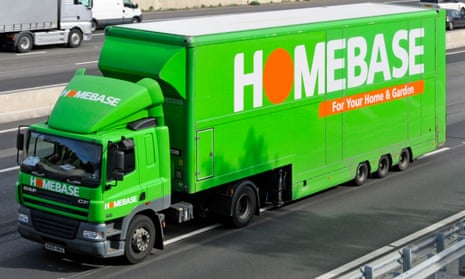The strangest acquisition in the retailing sector in the past couple of years was the £340m purchase of Homebase by Wesfarmers of Australia.
It was odd in many ways. First, nobody had been able to make decent money from Homebase in years. Second, hardly anybody in the UK has heard of Bunnings, the Australian format that will gradually replace Homebase. Third, Wesfarmers had never done a big deal outside Australia and New Zealand.
So, after the first full year of ownership, how is the revolution shaping up? Not well. Homebase lost £54m last year and the bullishness of a year ago has gone.
“The volume and pace of repositioning Homebase affected store execution and consequently trading performance,” Wesfarmers says.
As for the four new Bunnings stores, “early indications are that the format is resonating well with customers”.
Resonating well? Does that mean financial targets are being met or not? The Homebase refit will take three years at least, so it’s too soon to write off the Aussies, but a loss of £54m in year one won’t reassure the many vocal sceptics back home.
A glance at B&Q won’t raise spirits, either. Parent Kingfisher grumbled about summer rain, as it often does, but minus 4.7% for B&Q’s like-for-like sales was a poor result in any weather. The shares fell 4% to hit a two-year low.
Kingfisher has become an infuriating investment for its shareholders. It has preached the virtue of being a pan-European retailer for a decade but the benefits constantly seem to lie around the next corner.
The latest five-year plan aims eventually to improve annual earnings by £500m, by rebooting IT systems and halving the number of products, but it’s hard work. There have been too many stock shortages.
Disruption is “on an improving trend”, says Kingfisher’s chief executive, Véronique Laury, looking for comfort.
Bunnings beware: capturing the Anglo-Australian benefits probably won’t be straightforward if Kingfisher is still struggling with pan-European ones.
A little more honesty needed over energy price cap
Dermot Nolan, chief executive of Ofgem, is stating the obvious again. You can’t blame him. He is the regulator who has been lined up to find a miraculous way to live up to the Tories’ pre-election hype about cutting £100 from every household’s energy bill. The task looks impossible.
Theresa May championed price caps and then found herself with a slim majority and unable to deliver them. Thus Nolan has found the ball booted into his court.
“Ofgem has powers available that would allow it to address the problems in the market we now see,” the energy secretary, Greg Clark, said after the election.
But what powers does Ofgem – the Office of Gas and Electricity Markets – really have?
Formally, it can do whatever it wishes because it is an independent regulator. But Ofgem would run into practical difficulties if it opted for a market-wide price cap on standard variable tariffs, which seemed to be May’s idea.
The energy suppliers could appeal to the Competition and Markets Authority and, since the CMA last year rejected a full price cap, the protests would probably succeed.
Thus Nolan, in an interview with the FT, again felt obliged to point out the facts of life. A wide-ranging intervention in the energy market is a “policy matter for government”, he said.
He’s right. Ofgem can fiddle with “safeguard” tariffs for specific groups of customers and will probably do so again next month when it responds to Clark. Prepayment customers are already covered and another two or three million people could be included if the net is extended to yet-to-be-defined “vulnerable” customers.
But that would only take the tally to six or seven million customers, not the 17 million families referenced by May.
Ministers, especially Clark, ought to be more honest. A limited price cap is a job for Ofgem but a full May-style fix is a task for parliament. The blurring of the lines confuses matters, which is presumably the intention.
Asda gets a pat on the head from Walmart
Lucky old Asda got a visit in June from its big boss – the Walmart president and chief executive, Doug McMillon – and now it has received a pat on the head. “There’s still much more to be done, but we’re clearly headed in the right direction,” says McMillon.
Well, OK, the first quarterly rise in sales for three years is plainly an improvement, but let’s not overstate matters. The figure was only 1.8% and profits still fell. In the circumstances, Walmart’s relaxed keep-up-the-good-work attitude is remarkable.
The US giant has bigger things to worry about, like Amazon’s adventures in its own backyard. But, once upon a time, Asda, fuelled by Walmart’s muscle, was supposed to cause chaos among competitors. It never happened, and won’t now.

